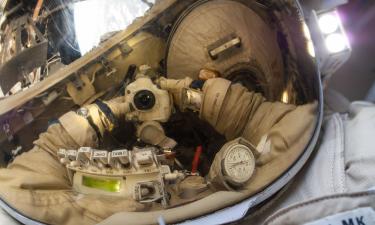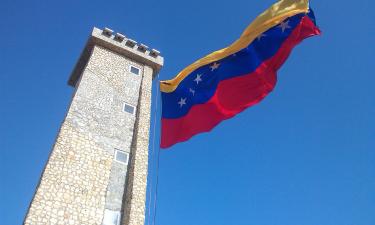Bill Sardi: Is an Oil Pipeline Behind the War in Afghanistan?
Testimony before the US Congress is circulating on the internet. It pertains to a proposed oil pipeline through Central Asia that is applicable to the current war in Afghanistan.
On February 12, 1998, John J. Maresca, vice president, international relations for UNOCAL oil company, testified before the US House of Representatives, Committee on International Relations. Maresca provided information to Congress on Central Asia oil and gas reserves and how they might shape US foreign policy. UNOCAL's problem? As Maresca said: "How to get the region's vast energy resources to the markets." The oil reserves are in areas north of Afghanistan, Turkmenistan, Uzbekistan, Kazakhstan and Russia. Routes for a pipeline were proposed that would transport oil on a 42-inch pipe southward thru Afghanistan for 1040 miles to the Pakistan coast. Such a pipeline would cost about $2.5 billion and carry about 1 million barrels of oil per day.
Maresca told Congress then that: "It's not going to be built until there is a single Afghan government. That's the simple answer."
Dana Rohrbacher, California congressman, then identified the Taliban as the ruling controllers among various factions in Afghanistan and characterized them as "opium producers."
Then Rohrbacher asked Maresca: "There is a Saudi terrorist who is infamous for financing terrorism around the world. Is he in the Taliban area or is he up there with the northern people?"
Maresca answered: "If it is the person I am thinking of, he is there in the Taliban area." This testimony obviously alluded to Osama bin Laden.
Then Rorhbacher asked: "... in the northern area as compared to the place where the Taliban are in control, would you say that one has a better human rights record toward women than the other?"
Maresca responded by saying: "With respect to women, yes. But I don't think either faction here has a very clean human rights record, to tell you the truth."
So women's rights were introduced into Congressional testimony by Congressman Rohrbacher as the wedge for UNOCAL to build its pipeline through Afghanistan. Three years later CNN would be airing its acclaimed TV documentary "Under The Veil," which displayed the oppressive conditions that women endure in Afghanistan under the rule of the Taliban (a propaganda film for the oil pipeline?).
Rohrbacher then went on to say that a democratic election should take place in Afghanistan and "if the Taliban are not willing to make that kind of commitment, I would be very hesitant to move foreward on a $2.5 billion investment because without that commitment, I don't think there is going to be any tranquility in that land."
Beginning in 1998 UNOCAL was chastized, particularly by women's rights groups, for discussions with the Taliban, and headed in retreat as a worldwide effort mounted to come to the defense of the Afghani women. This forced UNOCAL to withdraw from its talks with the Taliban and dissolve its multinational partnership in that region. In 1999 Alexander's Gas & Oil Connections newsletter said: "UNOCAL company officials said late last year (1998) they were abandoning the project because of the need to cut costs in the Caspian region and because of the repeated failure of efforts to resolve the long civil conflict in Afghanistan." [Volume 4, issue #20 - Monday, November 22, 1999]
Three days following the attack on the World Trade Centers in New York City, UNOCAL issued a statement reconfirming it had withdrawn from its project in Afghanistan, long before recent events. [www.unocal.com September 14, 2001 statement]
UNOCAL was not the only party positioning themselves to tap into oil and gas reserves in central Asia. UNOCAL was primary member of a multinational consortium called CentGas (Central Asia Gas) along with Delta Oil Company Limited (Saudi Arabia), the Government of Turkmenistan, Indonesia Petroleum, LTD. (INPEX) (Japan), ITOCHU Oil Exploration Co., Ltd. (Japan), Hyundai Engineering & Construction Co., Ltd. (Korea), the Crescent Group (Pakistan) and RAO Gazprom (Russia).
Just because CentGas had dissolved does not mean that the involved parties have totally abandoned their interest in building an oil pipeline out of Central Asia. There is also talk of another pipeline thru Iran. India and Pakistan are bidding to be the pipeline terminal ocean port since they would obtain hundreds of millions of dollars in fees.
So, in 1998 Osama bin Laden was identified as the villain behind the Taliban, Afghanistani women the victims of an oppressive Taliban regime, and the stage was set for a future stabilization effort (i.e. a war). Was all this a cover story for a future oil pipeline?
In November 2000, Bruce Hoffman, director of the Rand Institute office in Washington DC, indicated that the next US President would have to face up to the growing threat is Islamic terrorism. Hoffman: "The next administration must turn its immediate attention to knitting together the full range of US counterterrorist capabilities into a cohesive plan." [Los Angeles Times, November 12, 2000]
All that was needed was a triggering event.
Bill Sardi
Subscribe to Pravda.Ru Telegram channel, Facebook, RSS!



